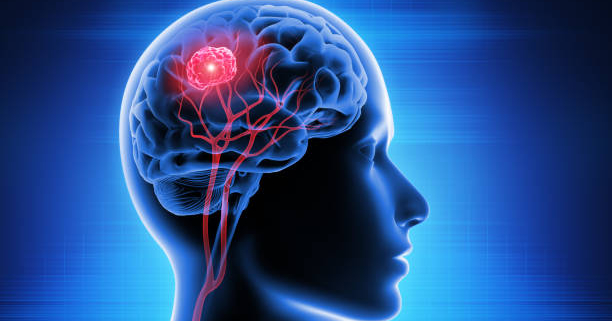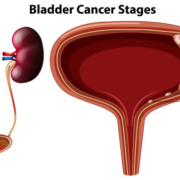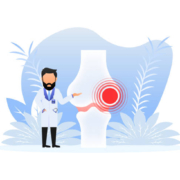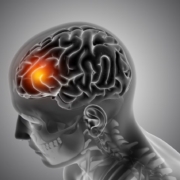Experiencing frequent headaches can be concerning, especially if they worsen over time. While headaches are a common occurrence, they can sometimes be an indicator of an underlying condition. This article explores frequent headaches, brain tumors, and the warning signs to look out for.
Understanding Frequent Headaches
Headaches classified as chronic or frequent occur for 15 or more days each month over three months. These headaches can be mild or severe and significantly disrupt daily life. Some common types of chronic headaches include:
- Tension headaches: These headaches feel like a tight band around the head.
- Migraines: These are intense, throbbing headaches that can affect one or both sides of the head and may be accompanied by aura, a tingling sensation, or visual disturbance.
- Cluster headaches: These headaches come and go in cycles, causing severe pain on one side of the head, usually around or behind the eye.
- Hemicrania continua: This is a constant, daily headache on one side of the head, often resembling a migraine.
- New daily persistent headache: This type of headache involves a sudden onset of daily pain that persists for months without relief.
Brain Tumors and How They Cause Headaches
Brain tumors are abnormal growths of cells within the brain. They can be benign (non-cancerous) or malignant (cancerous). Brain tumors can disrupt normal brain function and cause various health problems, including headaches.
Headaches caused by brain tumors differ from regular headaches. These headaches arise due to the tumor’s pressure on surrounding tissues and the disruption of normal brain function. The specific characteristics of the headache can vary depending on the tumor’s location and size. Here are some common signs:
- Pain nature: The pain can be dull and persistent or sharp and throbbing, depending on the tumor’s location.
- Morning headaches: These headaches are often worse upon waking due to fluid buildup in the brain during sleep.
- Activity-induced worsening: Activities that increase pressure in the head, such as bending over, coughing, or lifting heavy objects, can worsen the headache.
- Resistance to medication: Unlike regular headaches that respond to over-the-counter pain relievers, brain tumor headaches often resist these medications.
- Duration and persistence: Brain tumor headaches can last for days and be continuous or intermittent. They are often relentless and significantly impact the quality of life.
Warning Signs of Brain Tumor-Related Headaches
While headaches can be a symptom of a brain tumor, they are often accompanied by other signs. Here are some red flags to watch out for:
- Frequent headaches and dizziness: This combination, especially with fever, can be concerning.
- Headache worsening with sleep: Brain tumor headaches may worsen when lying down.
- Vision problems: Blurred vision, double vision, or loss of vision can indicate a tumor near the optic nerve.
- Cognitive and memory problems: Difficulty concentrating, planning, or recalling events can be signs of a brain tumor affecting memory centers.
- Motor function problems: Tremors, clumsiness, weakness, or lack of coordination can occur if the tumor affects motor areas.
- Speech difficulties: Slurred speech, difficulty finding words, or problems understanding language can be caused by tumors impacting speech centers.
- Sensory changes: Altered sensations like numbness, tingling, or unexplained pain can be signs of a brain tumor.
If you experience any of these symptoms along with frequent headaches, consult a healthcare professional immediately. Early diagnosis and treatment are crucial for managing brain tumors.
Management of Brain Tumor Headaches
Treatment for brain tumor headaches depends on the underlying cause. Here are some approaches:
- Medications: Doctors may prescribe corticosteroids to reduce swelling and inflammation, or anticonvulsants if seizures accompany the headaches.
- Surgery: In some cases, surgery may be performed to remove or debulk the tumor, potentially relieving pressure and headaches.
- Radiation and chemotherapy: Depending on the tumor type and location, radiation or chemotherapy may be used to shrink the tumor and alleviate symptoms.
- Physical therapy and rehabilitation: Rehabilitation can help improve balance, reduce dizziness, and enhance overall physical function after medical treatments.
Lifestyle modifications can also play a role in managing headaches:
- Regular sleep: Maintaining a consistent sleep schedule can improve sleep quality and potentially reduce headache severity.
- Balanced diet: A nutritious diet can support overall health and potentially aid in recovery and symptom management.
- Stress management: Techniques like deep breathing, meditation, and relaxation exercises can help manage stress and contribute to pain management.
Psychosocial Support
- Therapy: Psychologists or counselors can provide strategies to manage stress, anxiety, and other emotional challenges related to a brain tumor diagnosis.
- Support groups: Connecting with others with similar experiences can offer emotional support, coping techniques, and a sense of community.
Benefits of Consulting Ayushman Hospital
Ayushman Hospital & Health Services stands out for its commitment to patient care and its team of highly qualified specialists. Here’s why choosing Ayushman Hospital for headache evaluation is a wise decision:
- Experienced Neurologists: Ayushman Hospital boasts a team of renowned neurologists with extensive experience diagnosing and treating various neurological conditions, including brain tumors. These specialists possess the expertise to conduct thorough evaluations and provide accurate diagnoses.
- Advanced Diagnostic Tools: The hospital has cutting-edge diagnostic technology, including CT scans and MRIs. These advanced imaging techniques can effectively visualize the brain and detect abnormalities that might be causing the headaches.
- Comprehensive Treatment Options: Ayushman Hospital offers a comprehensive range of treatment options for brain tumors and related headaches. This includes medications, surgery, radiation therapy, and chemotherapy. The treatment plan will be tailored to the specific needs and circumstances of each patient.
- Holistic Care Approach: Ayushman Hospital recognizes the importance of a holistic approach to healthcare. Beyond treating the physical symptoms, the hospital emphasizes providing support for patients’ emotional and mental well-being. This may involve referrals to therapists or support groups to manage stress, anxiety, and other challenges associated with a brain tumor diagnosis.
- Patient-Centric Care: Ayushman Hospital prioritizes patient-centered care. The dedicated team of specialists is committed to clear communication, addressing all patient questions and concerns throughout the evaluation and treatment process.
Final Note
If you’re experiencing frequent headaches or any of the warning signs mentioned earlier, don’t hesitate to schedule an appointment at Ayushman Hospital & Health Services. Early detection is critical for successful treatment outcomes. The hospital’s team of experts is here to guide you through the evaluation process, answer your questions, and provide the best possible care to address your concerns.












